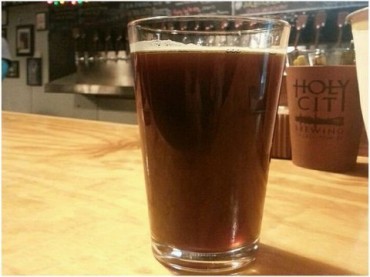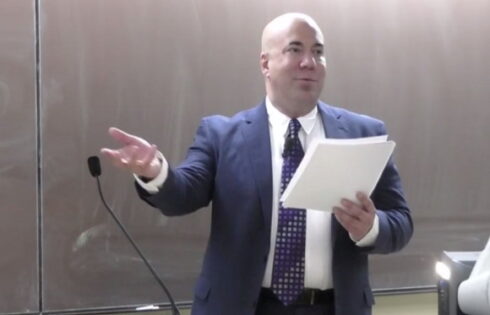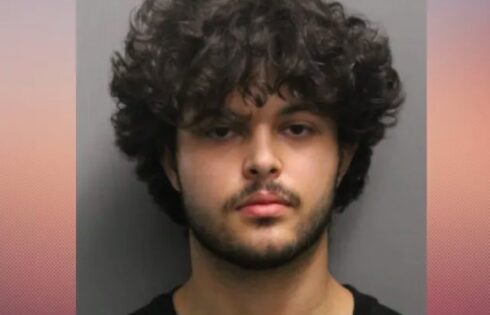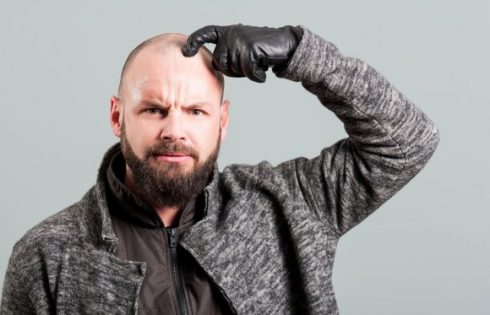
It’s long been argued that the drinking age should be lowered from 21 to 18, and in the wake of the alleged campus rape epidemic facing universities today, those calls have emerged anew.
While it might seem antithesis to solving the problem, think again.
Under-21 prohibition gives alcohol a phony mystique and contributes to binge drinking on campuses, in addition to the fact that we should not withhold basic legal rights from people who are otherwise granted the right to vote, considered adults under the law, and eligible to die for our country through military service.
In an op-ed published Sunday by The New York Times, Ross Douthat suggests the time is now for lowering the drinking age in the wake of the campus rape scourge.
“The key problem in college sexual culture right now isn’t drinking per se; it’s blackout drinking, which follows from binge drinking, which is more likely to happen when a drinking culture is driven underground,” Douthat writes.
“Undoing the federal government’s Reagan-era imposition of a higher drinking age is probably too counterintuitive for lawmakers to contemplate. And obviously it wouldn’t eliminate the lure of the keg stand or tame the recklessness of youth,” he added. “But it would create an opportunity for a healthier approach to alcohol consumption — more social and relaxed, less frantic and performative — to take root in collegiate culture once again.”
And Reason reporter Robby Soave cut to the chase Monday in a piece headlined: “Want Less Campus Rape? Lower the Damn Drinking Age Already.”
“Many campus rapes happen because one person takes advantage of another’s inebriated state,” he writes. “Subsequent accusations involve fuzzy memories and blurry definitions of consent.”
“The current drinking age facilitates this by encouraging college students to drink a lot in a short period of time, since drinking is illegal for them at all times, regardless. (And thanks to the drinking age, intoxicated students who become victims of a crime or serious accident are less likely to seek help from the proper authorities, since they have broken the law themselves.)”
And while this topic is getting some ink right now, it’s actually an oldie but goodie.
In 2007, years before the “rape culture” was on everyone’s minds, an article in National Review debunked the notion that having the drinking age sit at 21 “saves lives.”
“It’s just not true,” former college President John McCardell Jr. said at the time. “I’m not going to claim that legal-age 21 has saved no lives at all, but it’s just one factor among many and it’s not anywhere near the most important factor.”
McCardell, the former head of Choose Responsibility who today is the president of the University of the South in Sewanee, TN., reiterated that in a 2012 piece in the New York Times, writing: “If you infantilize someone, do not be surprised when infantile behavior — like binge drinking — results.”
“Prohibition is not the answer, and never has been. Let us treat young people who turn 18 as the adults who the law, in every other respect, says they are.”
Just last week, outgoing Hiram College President Tom Chema also said as much in an interview:
Tom Chema moved out of his office at Hiram College this week as he officially retires Monday after 11 years as president. While at the helm he saw what you’re likely to see on almost any college campus: A lot of underage drinking.
Ohio’s legal minimum drinking age, like that of every other state, is 21. The state was forced to hike the age after the National Minimum Drinking Age Act of 1984 was passed, threatening to gouge into federal highway distributions if states didn’t fall in line. In 1987, Ohio complied. No longer could those as young as 19 buy beer.
But it’s a fact of life, says Chema, that people under 21 drink. And he says the way they drink, illicitly off campus and behind closed doors, can contribute to unsafe alcohol-related incidents such as sexual assault. …
“They do it in greater volume than I believe would be the case if they were legally entitled to have a beer or two beers,” he said. “We see all of this binge drinking as a direct correlation to that problem of not being able to legally get a beer.”
Any parent can tell you that when they scold their children not to do something, typically it makes them want to do it more.
While it may feel strange to support lowering the drinking age, the reality is college kids are already drinking. Any college grad can vouch for that. Keeping the drinking age at 21 adds fuel to the fire.
Jennifer Kabbany is editor of The College Fix. ( @JenniferKabbany )
Like The College Fix on Facebook / Follow us on Twitter







Please join the conversation about our stories on Facebook, Twitter, Instagram, Reddit, MeWe, Rumble, Gab, Minds and Gettr.